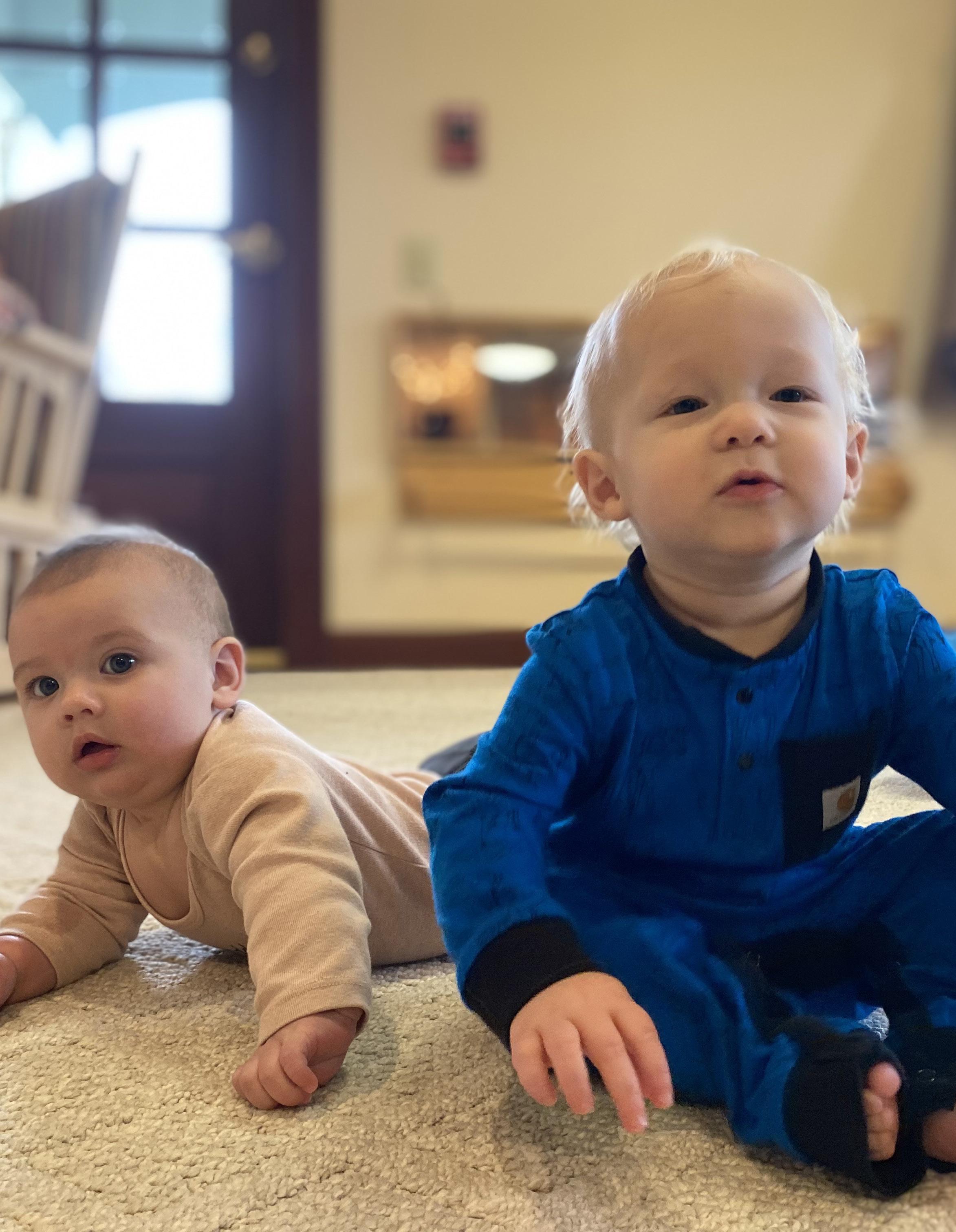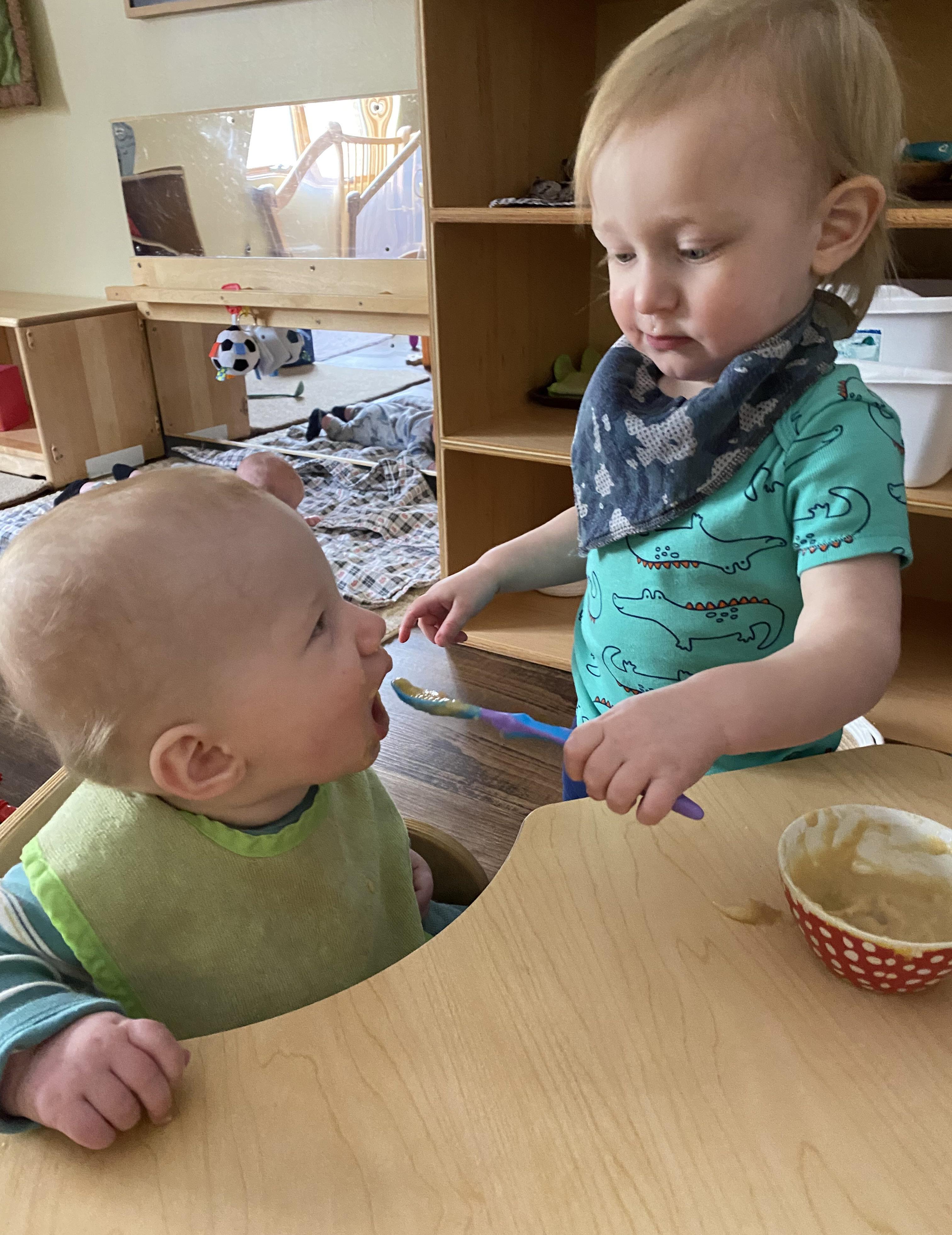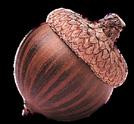Oak Farm Montessori
March

2023
There are some lessons that cannot be learned from a textbook. At Oak Farm Montessori School, our teachers model the behavior, respect and compassion that they want to see emulated in the students they serve each day. Whether it is providing a lesson in grace and courtesy at the early childhood level, encouraging peaceful conflict resolution between two elementary students or leading a Socratic seminar at the secondary level, our faculty know that guiding students in developing healthy social skills is as important as any academic endeavor.
Dr. Maria Montessori aptly identified key factors to include in each classroom that support this social development. By having multi age classrooms, children are less focused on competition amongst peers and more focused on collaboratively working to learn from, and sharing with, others; impacting younger and older classmates. Another unique aspect of the Montessori classroom is the limitation of material. If there is only one pink tower, one large bead frame and one grammar symbol box in each classroom, the children learn patience, respect and a sense of order. All materials are organized on the shelf, top to bottom, from introduction to most complex. If a work is missing from the shelf, this lets the child know that someone else is already using it and they will need to choose something else. Montessori also saw the importance of individual and small group lessons. These interactions provide students with an opportunity to share observations safely and freely while practicing conversational skills.
Whether you are walking into a toddler classroom, P.E. class, upper elementary science lab or middle school off campus outing, our students are confident in expressing themselves. A characteristic that many adults still struggle to accomplish confidently.

Candice

2
HEAD OF SCHOOL
LEAD BY EXAMPLE
Ashley knudson, infant teacher

From the moment of birth, your baby began to develop his or her personality. All infants develop this way through social relationships and experiences; through nurturing and trusting relationships, infants and toddlers learn about the world. Their brains mature through interactions, and they learn how to form relationships, communicate, respond to challenges, and how to recognize, experience, and regulate their emotions from their relationships with caregivers.

Montessori classrooms have many forms of social development. One of them being mixed ages in a classroom. Mixed age classrooms are a signature element of a Montessori school because Dr. Montessori believed that children learn from one another. This is proven in the Montessori environment where you will often see an older child helping younger peers and gaining social maturity from being a role model. The younger child may learn new concepts from the older child and, as they look up to the older child, they will begin to see that they too, will be just as capable one day.
Growing together is natural, as children instinctively know when to offer help, encouragement, and comfort to those around them. Therefore, the mixed age group means that children have the opportunity to interact with both older and younger peers, all of whom are at different levels of individual development. The mixed age group provides daily opportunities to practice patience, tolerance, and receiving or offering assistance. Younger children look to the older children with admiration and for inspiration, and in turn, the older children help and teach the younger children.
#supportourschool




4
Hello, it’s nice to meet you!
Stacia Diggins, Primary 2 Teacher

In a Primary Montessori classroom, our children learn and practice how to show grace and courtesy, how to interact respectfully to another peer, and show appreciation for one another. These values our part of our foundational curriculum at the beginning of the year and they continue to develop and practice these skills throughout our school year.

Each morning we greet one another when a peer walks in the door during our morning carline. This social interaction encourages the child to develop a dialogue and conversation with their peers as well as build a strong vocabulary and dialect. In this plane of development, 0-6 years of age, the child is eager to help and demonstrate leadership roles in our classroom. They show these skills by having “jobs” in our classroom; like folding our laundry, putting away our dishes from the previous day, preparing and sharing snacks with their peers, demonstrating grace and courtesy during our lunch time, and finally, the Kindergartners taking on their afternoon jobs of restoring the classroom after lunch.
Primary age children, during this time of social development, are growing in their peer-to-peer dialogues while learning to add their experiences or ideas to others stories. They are also learning to practice and demonstrate taking turns with their peers while talking.
As a Primary Teacher in the classroom, we act as a guide during the child’s social development. We are there to support them in their problem solving and critical thinking skills. By guiding the children in this manner, we allow the child to self-regulate and take control of their actions and dialogue.
In the end, our classroom revolves around respect for others and building interpersonal relationships. With these skills, your child will develop friendships, respect for their peers and with adults.
#supportourschool
“The love of one’s environment is the secret of social evolution”
Maria Montessori.
The social development of the Lower Elementary (LE) student is quite different from the 3-6 year old in Early Childhood. While the primary student still prefers to work alone or side by side with another student, peer collaboration has become very important to the 6-9-year-old. Often, when you enter a LE classroom, you will notice how students are drawn to big, collaborative work. Sometimes, it may be hard work for our students to work collaboratively and maintain a successful learning environment. However, allowing our students to do so is part of the LE experience and important for the social development of all.
The lower elementary student is extremely sensitive and aware of what others think of them. This sensitivity often creates scenarios where feelings get hurt and misunderstandings develop. They are now developing their own conscience, but do not really yet have an understanding of others. In the LE classrooms, we spend a significant amount of time on building relationships and communication skills. We have many smaller

and larger community meetings where they learn to listen to each other’s perspectives and get to voice their opinions in respectful ways. Fairness is so important to them and part of their big work!
“In the child is much knowledge, much wisdom. If we do not profit from it, it is only because of neglect on our part to become humble and to see the wonder of this soul and learn what the child can teach.”
– Maria Montessori
Children in the 6-9 year old classroom may appear as “tattle-tales”, but what they are really doing is trying to find out what behaviors are acceptable and which ones are not. During this stage, they are testing the adult’s reactions and will question our moral codes. They are very interested in why we do certain things. It is no longer satisfying to them when we excuse rules such as, “because I said so” or “because it is not safe”. They will want to know why we say things and why it is not safe. Additionally, peers hold each other accountable. If you are not kind, respectful or assisting in the work, you will have difficulty finding someone to work with you. Montessori saw the importance of this self correcting behavior in the development of morals and values for the children.
6
Herd Instinct and Why?Why?Why?
Ines Oldenburg, Lower Elementary Teacher


#supportourschool
A FOCUS ON RESPECT
SANDRA DEACON, UPPER ELEMENTARY TEACHER
In the Upper Elementary classroom, students focus on creating guidelines for their environments. We classify these guidelines into Care of Self, Care of Others, and Care of Environment. These guidelines also serve as a springboard for Grace and Courtesy lessons that help the students work as a community in all areas of school life. Many of the lessons at the beginning of the year involve care of the environment, such as rolling and storing work rugs and filling in classroom supplies on the supplies’ shelf. Upper students are expected to complete classroom jobs or chores to maintain their beautiful environments. This also helps instill gratitude and appreciation for the beautiful spaces we get to learn in every week. Every chore and job is taught under the premise of the Care for Self, Others, and Environment and how they relate to each category.
An example of an Upper Elementary student’s routine is to learn how to properly set a place setting. Each student does this before lunch everyday. They are also encouraged to invite friends and family to join them for lunch as guests. When a student is expecting a guest for lunch they are expected to arrange their guests’ hot lunch to be delivered to the classroom if necessary, set a place setting for their guest, as well as ensure that there are enough seats for the rest of their classmates. The students love having guests and being guests in their friends’ classrooms as well as visiting their teachers in Lower Elementary.

The all encompassing lesson here is respect. It is interwoven into every aspect of the Montessori classroom and is expected of all community members. When the adults expect and model respect for the children, the environment, and each other, it helps to create a cohesive community where the children are comfortable being vulnerable. A place where they are comfortable pushing themselves to learn new, and sometimes difficult concepts, and create a collaborative, rather than competitive, learning environment. Focusing on respect also teaches students to be empathetic, inclusive, and compassionate.


8




#supportourschool
LEARNING FROM LIFE ON THE LAND
CRYSTAL LEU, MIDDLE SCHOOL FARM MANAGER

As “land children,” students working in Erdkinder each day have the opportunity to learn about civilization and social structures through its origin in agriculture. Working in teams, our adolescents are immersed in a world of meaningful work and interactions with peers, animals and the land. Working in the barn, greenhouse, or in the business part of Erdkinder provides an environment rich with opportunities to build a wide variety of social skills including: communication, teamwork, respect, compassion and empathy.
Social interaction skills of grace and courtesy are put into practice everyday as students navigate tasks that require them to work effectively and efficiently with others. Several of the ten Cowboy Ethics principles that we study each week are essential to working within a community. Adolescents learn to “be tough, but fair” as they work with each other caring for animals, plants or marketing the farm products. They learn how to communicate with others (including animals) with grace and dignity, within an inclusive environment, where everyone is learning important skills for life together. They practice the principle of “when you make a promise, keep it” through their commitment to the animals, plants and business that depend on their effort and
MADELYN BURTCH
work ethic. Students soon learn that actions speak louder than words in communicating with their team. This is demonstrated in the principle, “talk less and say more.”
For many students this is one of the first times that they start thinking about the greater society or community and put less focus on themselves. They start to value work, be it manual or intellectual, and gain an understanding of how essential both kinds are to the sustainability of a civilized society. Time spent together allows these young adults the chance to really get to know each other and appreciate the gifts and uniqueness of each member of the community.
Erdkinder work also provides opportunities to interact with adults as students make contact with professionals in the field, prepare and market their goods, and share knowledge on farm tours. They learn to write and speak professionally as well as understand how their work on the farm, and in the micro-economy, simulates the same work in the community around them. Erdkinder experiences ensure that Oak Farm Montessori’s students of the land are well equipped to be the stewards of tomorrow and strong members of their community!
Specifically in poultry, I have learned how to be compassionate with animals I might not be as interested in, or familiar with, and even scared of sometimes. I have also learned that regardless of my fear I have to work with the animals to help keep them alive, as well as help the micro economy, because those animals are beneficial to it.
10
REESE WOLHETER
This year I have learned that sometimes you just need to step up and just work, but with that you also need to take the time to teach people about the work. Last year in the first trimester I had a partner who I got along with very well, plus he knew a lot about animals and it was easy. Even though easy is nice, the more challenging partners teach me more. Having easy things to do or people to work with can be very good, but once in a while a challenge is good.
RILEY FITZHARRIS

I have learned leadership by learning from my previous experience and mistakes. I have also been mentored well by a previous 8th grader (Elizabeth Wolheter.) I am glad that I can pass some of my skills to the newer people and hope they do the same for the next generation of people. I have also learned teamwork and am able to work with different people with different skills too.


“A Cowboy Ethic I learned the most about is “Be Tough, But Fair”. I am not one to mess around, if something needs done, it gets done. But, sometimes I take it too far and get a little rude. I’ve been working on it and becoming more aware of how I get what I want to say across. Maybe just being stern, but knowing when it gets too much. Which also kinda correlates with “Know Where to Draw the Line.” Cowboy Ethics really teach a lot.”

#supportourschool
LEAH COOK




12
WHAT DOES SOCIAL DEVELOPMENT LOOK LIKE IN PHYSICAL EDUCATION?
DIANA MCCREERY, PHYSICAL EDUCATION TEACHER
First, let’s look at what each one means individually…Social development is gradually gaining certain skills such as language and personal skills, attitudes, relationships, and behavior that enable the individual to interact with others and to function as a member of society. Physical education provides cognitive content and instruction designed to develop motor skills, knowledge, and behaviors through physical activity and physical fitness. When these two skills are married together you get a functional and beautiful class of PE!
PE class is often all about playing; and, this is great because play is probably the number one way children develop socially. Every time students play a new game or sport, or enter into a familiar one, they have to make decisions about leadership, cooperation, and mutual respect for one another. One way we promote social development in PE is to incorporate as many cooperative games, or games that involve cooperation and communication, into each class. For instance, instead of playing a regular game of dodge ball, we elevate the game by adding challenges or levels that the groups of students have to complete by working together. When students work together toward a mutual goal, they see each other as ‘whole’ and learn to pay attention to the strengths, weaknesses and needs of others in their community.
There are many skills that go into building social development, but these four skills are the pillars of healthy social development:
Cooperation and Communication: Social success relies on the ability to communicate effectively and appropriately. Simple tasks such as offering compliments to all and promoting positive behavior after not winning a game are mastered with practice. Team sports are excellent ways to teach communication between teammates and opposing team members as well as enhance confidence.
Self-confidence and Self-esteem: Physical education instills a stronger sense of self-worth in students based on their mastery of skills and concepts in physical activity. They can become more confident, assertive, independent and self-controlled. When all students are communicating and building each other up, the students go beyond their individual limits with greater success.
Peer Relationships: Physical education can be a major force in helping students socialize with others successfully and provide opportunities to learn positive people skills. Especially during late childhood and adolescence, being able to participate in games and sports is an important part of peer culture.

Responsibility: Physical education can influence moral development. Students have the opportunity to assume leadership, cooperate with others, question actions and regulations, and accept responsibility for their own behavior.


When all these skills are in practice, the students are able to communicate and have healthy problem solving skills to accomplish goals together as a TEAM.

#supportourschool
R.E.S.P.E.C.T. & WHAT IT MEANS TO ME
Respect plays a key role in social development in a Montessori classroom. The founder of the Montessori method, Dr. Maria Montessori, believed that respect for one another is a vital condition for positive interpersonal relationships and that socializing is a natural human necessity.
Students learn respect for one another, their surroundings, and the materials they utilize in a Montessori classroom. They are encouraged to conduct themselves responsibly and to treat others how they would like to be treated. Through this approach, children learn to develop empathy, understanding, and appreciation for the feelings and needs of others.
In a Montessori classroom, respect is promoted through a variety of techniques. Students are free to work in pairs or small groups, for instance, as this fosters teamwork and allows them to benefit from one another’s knowledge. This teaches students to value others’ qualities and differences and how to cooperate to achieve a shared objective. Students learn the importance of teamwork and respect for the contributions of others by interacting with students of all ages and skills. They develop a feeling of community and a culture of respect as they work together to support and aid one another.
Dr. Montessori placed emphasis on the value of fostering social environments that encourage respect and teamwork. Once, she stated,
“The child is capable of developing and giving us tangible proof of the possibility of a better humanity. He has shown us the true process of the construction of human beings. We have seen students totally change as they acquire a love for things and as their sense of order, discipline, and self-control develops within them.... The child is both a hope and a promise for mankind.”
Respect is essential for success in all facets of life, not only social development in a Montessori classroom. Students gain a sense of responsibility, confidence, and self-worth that will serve them well throughout their lives when they learn to not only respect themselves, but others and their surroundings.
By cultivating a caring, collaborative environment that values respect, Oak Farm Montessori helps students develop the social and emotional skills required for success in all parts of life. According to Maria Montessori, the finest sign of a teacher’s success is to be able to say, “The greatest sign of success for a teacher...is to be able to say, ‘The children are now working as if I did not exist.” By encouraging respect, Montessori teachers may help children realize their full potential as individuals and as members of a larger community.

14
MICHAEL TYLER, HIGH SCHOOL TEACHER







Mark your calendars P/T Conferences March 9 - 10th, 2023 Parent Education Event march 16th, 2023 Lower Elementary Learning Fair march 23rd, 2023 In-service - School Closed march 24th, 2023 Infants/Toddlers Closed march 24th, 2023 Spring Break Begins march 31st, 2023 S U P P O R T O U R S C H O O L VOLUNTEER TALL OAK FUND SGO DAY OF GIVING “To provide a Montessori environment that inspires students to reach their potential through meaningful work.” Oak Farm Montessori School | 502 Lemper Road | Avilla, IN 46710 | 260.897.4270 | www.oakfarm.org






































